Alexa, the website traffic checker tool, was founded in the late 1990s, and Amazon acquired it in 1999/2000. In the early 2010s and late 2000s, it was a very popular tool. People used to put the ranking widget on their sites even though the ranking had nothing to do with a website’s search engine ranking in Google, Bing, and other search engines.
Amazon had also launched a browser extension for its traffic analyzer tool. While the extension was available for download, there was a widespread rumor that when the extension is enabled in the browser, and the user opens the website, the site’s Alexa rank would decrease. People installed the extension and checked their site’s ranking often. You’ll still find old blog posts covering tips on improving the Alexa website rankings. Alexa was retired in 2022 by Amazon. Here are the top alternative tools you can use:
SEMrush
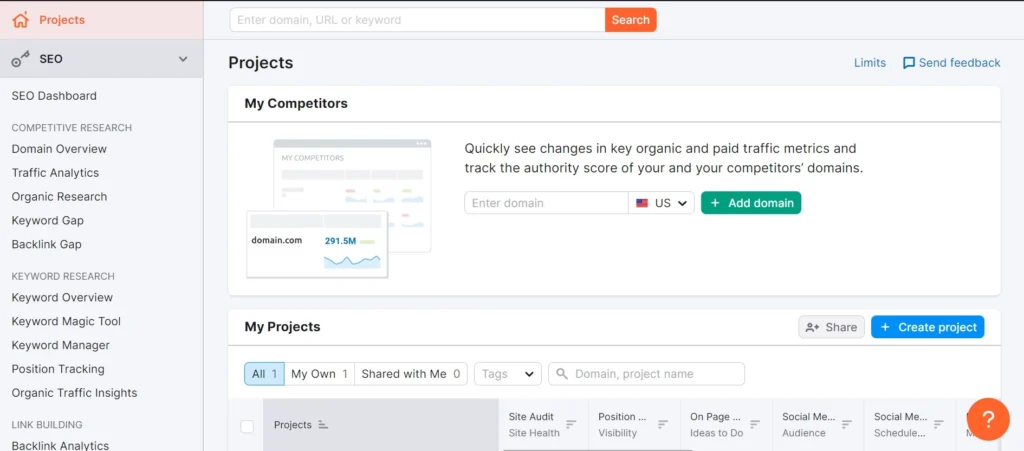
SEMrush is not only the best alternative to Alexa but is also several times better than Amazon’s website ranking service. Currently, it is the world’s best competitor analyzer tool. With SEMrush, users can audit their sites and check the vital data of their competitor sites. This SEO tool shows in-depth details of any website. It also features a website ranking system. The world’s top websites are ranked between 1 to 10000. New sites usually have a ranking of more than 300k on SEMrush.
What else can you do with SEMrush? You can see the keywords of the website and also analyze the backlinks. SEMRush ships with a real-time website auditing tool, and the records it displays when you run any of its utilities are sourced from the database populated by the SEMrush bot.
SimilarWeb
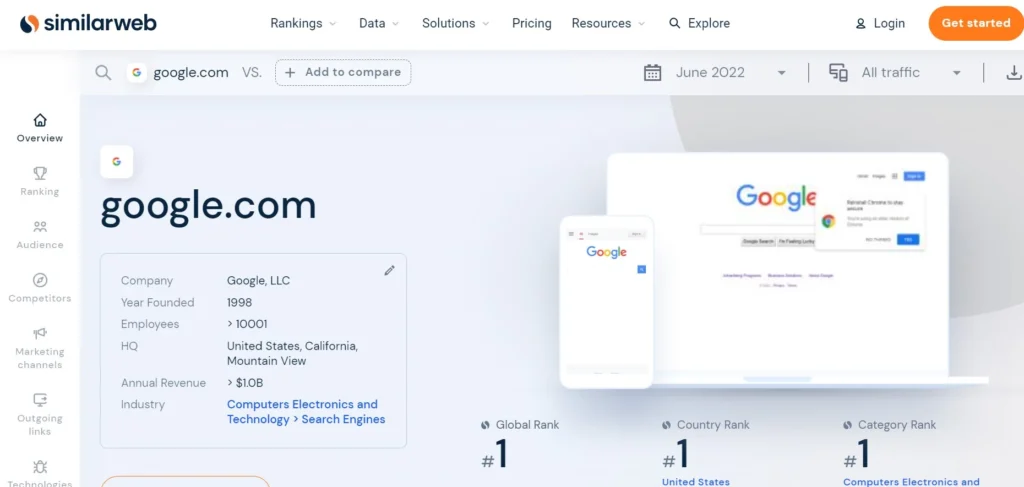
SimilarWeb is the most popular third-party website ranking service. It not only ranks a website but also shows some vital details of the website. Some of the details are – the industry to which the company/website belongs, the year the website/business was founded, the estimated revenue of the website, etc.
SimilarWeb shows the number of visits a website got, the site’s bounce rate, the number of pages a visitor visited before exiting the site, and the estimated time a user spent on the page. You can compare the two websites on SimilarWeb and see the list of sites with traffic in the same range. For example, if your site has 10k traffic. SimilarWeb shows sites with traffic within 7k to 15k.
Ahrefs
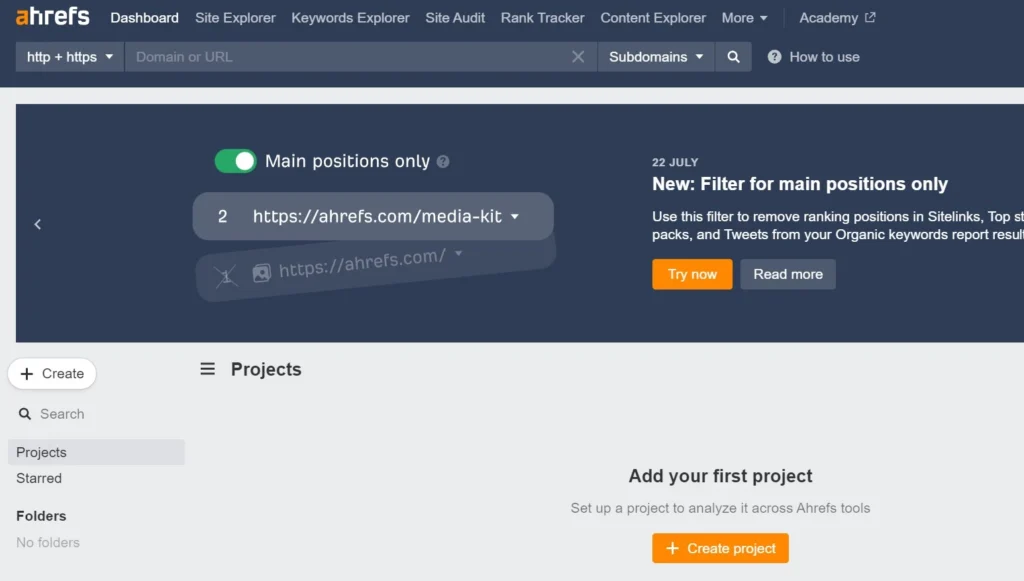
Ahrefs is a powerful search engine optimization tool like SimilarWeb. As in SEMRush, a custom-built robot called ahrefsbot crawls the pages of websites continuously and stores the SEO data in the Ahrefs database. The features of the two web applications are the same, but their UI is different. For example, you’ll find a keyword rank checker tool, backlink analyzer tool, keyword research tool, etc in Ahrefs.
Ahrefs has paid subscription plans only. It doesn’t let free users check any records in its database. This Alexa.com and SEMRush alternative offers an interesting tool called “Ahrefs webmasters” for users looking for a Google Search Console alternative site. The Ahrefs webmasters tool is similar to Google Search Console but supports on-demand scans.
Moz
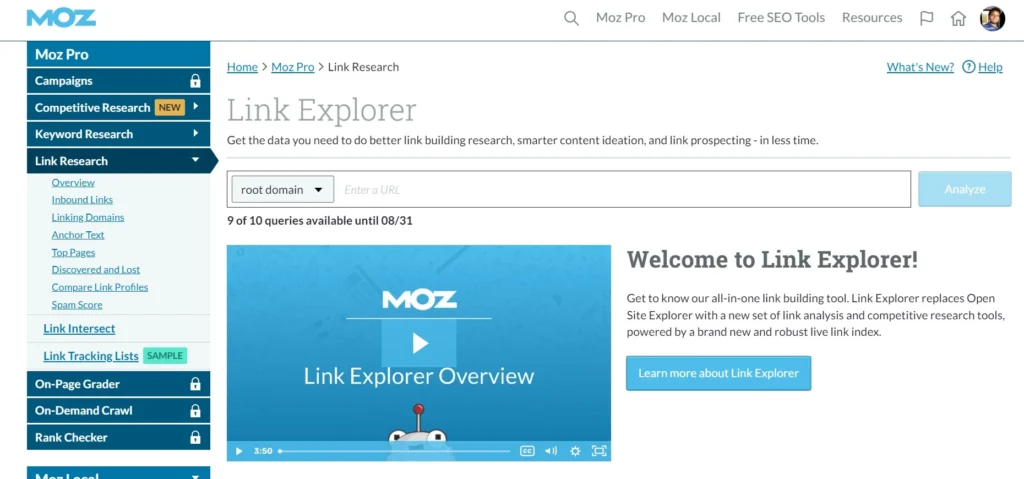
Moz is an alternative to Ahrefs and SEMrush. Like SEMrush, Moz offers a free plan wherein users can run ten queries and see up to 50 rows of data per month with these Moz tools:
Competitive research: With this utility, users can make their websites better than competitors’ websites by identifying new keyword opportunities. It accepts a URL as input and shows the entered website’s competitors in a table. You should choose the competitor from the table and click the compare button to see the list of keywords you can improve.
Link Research: Link Research tool of Moz helps users understand the backlink structure of the website by grouping the backlinks by their Domain Authority and showing the anchor text used on the third-party website for linking your domain. The Link Research utility also shows the list of pages with the most dofollow backlinks and with the highest “page authority”. For those who don’t know, the terms Domain Authority and Page Authority are coined by Moz.
Keyword Research: Keywords on pages are very important as they are responsible for driving traffic to your website. With the Moz Keyword Research tool, you can discover new keywords you can use on your website pages.
In addition to these three tools, Moz has built useful tools such as the rank checker, on-page grader, on-demand crawl, and campaigns. Only users of the Moz Pro plan have access to these tools.
Google Keyword Planner/Trends/Search Console
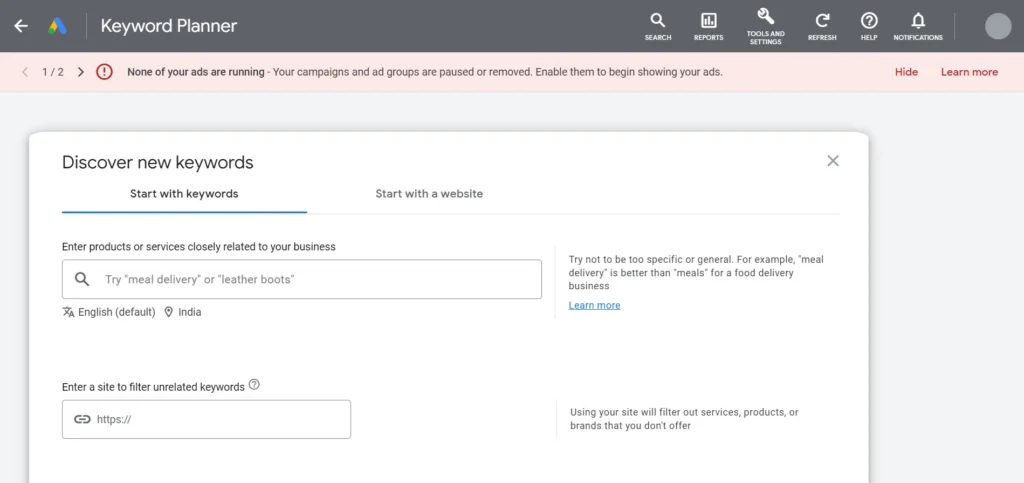
These three tools are operated by the search engine giant Google, and they differ from each other. With Keyword Planner, you can find new keywords. Keywords Planner enables you to filter keywords by many conditions. It also shows keywords search volume by country.
Trends show the popularity of keywords in a given time frame, and the Search Console allows users to monitor their site’s performance in Google. GSC also has some other valuable details about your site. For example, you can see the pages indexed/ignored by Googlebot, discover errors encountered by Googlebot while crawling your site, etc. GSC also shows the server response time and the pages with poor LCP, CLS, and FCP scores.
Ubersuggest
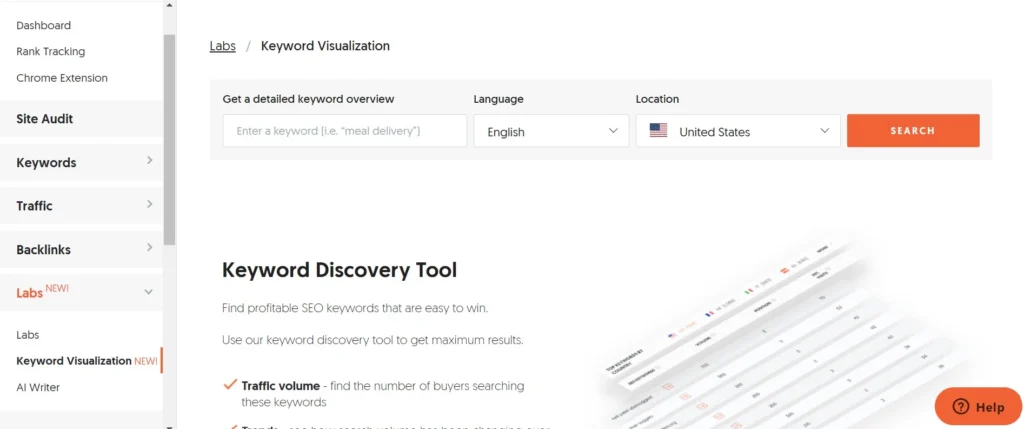
Ubersuggest is not as popular as SEMrush and Ahrefs but has the cheapest subscription plan. It shows data from third-party SEO tools. It doesn’t have an in-house crawler like SEMrush and Ahrefs. This Alexa.com alternative tool features backlinks and keyword reports. It also enables you to run site audits and track the rankings of keywords.
Ubersuggest features a new tool called keyword visualization that accepts a keyword as input and shows dozens of longtail keywords in a beautiful node graph. When you move the mouse cursor on the keyword, the tool will show a popup with these details – keyword CPC, paid difficulty, SEO difficulty, and volume.
Also see: SEMRush vs Ubersuggest
These are the best Alexa alternative SEO tools you can use.

